
US History Academic Standards
USH.7.1 Analyze the major events, personalities, tactics and effects of the Civil Rights Movement.
A. Assess the effects of President Truman's decision to desegregate the United States armed forces and the legal attacks on segregation by the NAACP and Thurgood Marshall, the United States Supreme Court decisions in the cases of Oklahomans Ada Lois Sipuel Fisher and George McLaurin, and the differences between de jure and de facto segregation.
Oklahoma History Center Education Resources
Traveling Trunks
African Americans in Oklahoma
E-Exhibit
The African American Civil Rights Movement in Oklahoma
African Americans in Oklahoma Before 1954
The Encyclopedia of Oklahoma History and Culture
Jimmie Lewis Franklin, "African Americans"
James M. Smallwood, "NAACP"
Robert H. Henry, "Civil Rights Movement"
James M. Smallwood, "Segregation"
Melvin C. Hall, "Ada Lois Sipuel Fisher"
Alfred L. Brophy, "McLaurin v. Oklahoma State Regents (1950)"
Research Center Resources
Ada Lois Sipuel Fisher, with Danney Goble, A Matter of Black and White: The Autobiography of Ada Lois Sipuel Fisher (Norman: University of Oklahoma Press, 1996).
Jimmie Lewis Franklin, Journey Toward Hope: A History of Blacks in Oklahoma (Norman: University of Oklahoma Press, 1982).
McLaurin v. Oklahoma State Regents, 339 U.S. 637, 640 (1950).
McLaurin v. Oklahoma State Regents, 87 F. Supp. 526 (W. D. Okla. 1949).
Mark Tushnet, Making Civil Rights Law: Thurgood Marshall and the Supreme Court, 1936–1961 (New York: Oxford University Press, 1994).
Audio/Visual
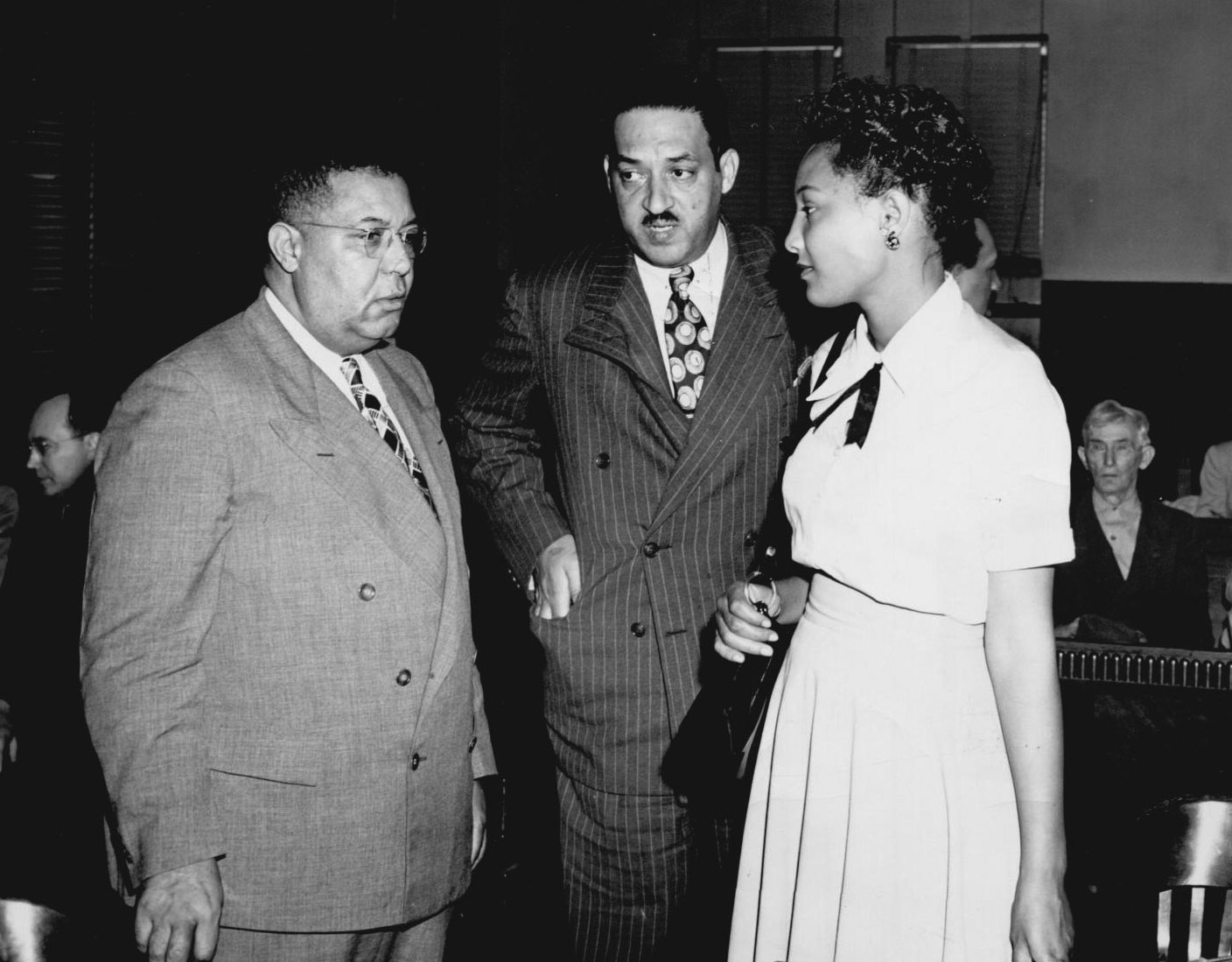 "Civil rights pioneer Ada lois Sipuel Fisher stands with Tulsa attorney Amos Hall and Thurgood Marshall, later a justice of the Supreme Court, during their 1948 legal battle." https://gateway.okhistory.org/ark:/67531/metadc745214/
"Civil rights pioneer Ada lois Sipuel Fisher stands with Tulsa attorney Amos Hall and Thurgood Marshall, later a justice of the Supreme Court, during their 1948 legal battle." https://gateway.okhistory.org/ark:/67531/metadc745214/
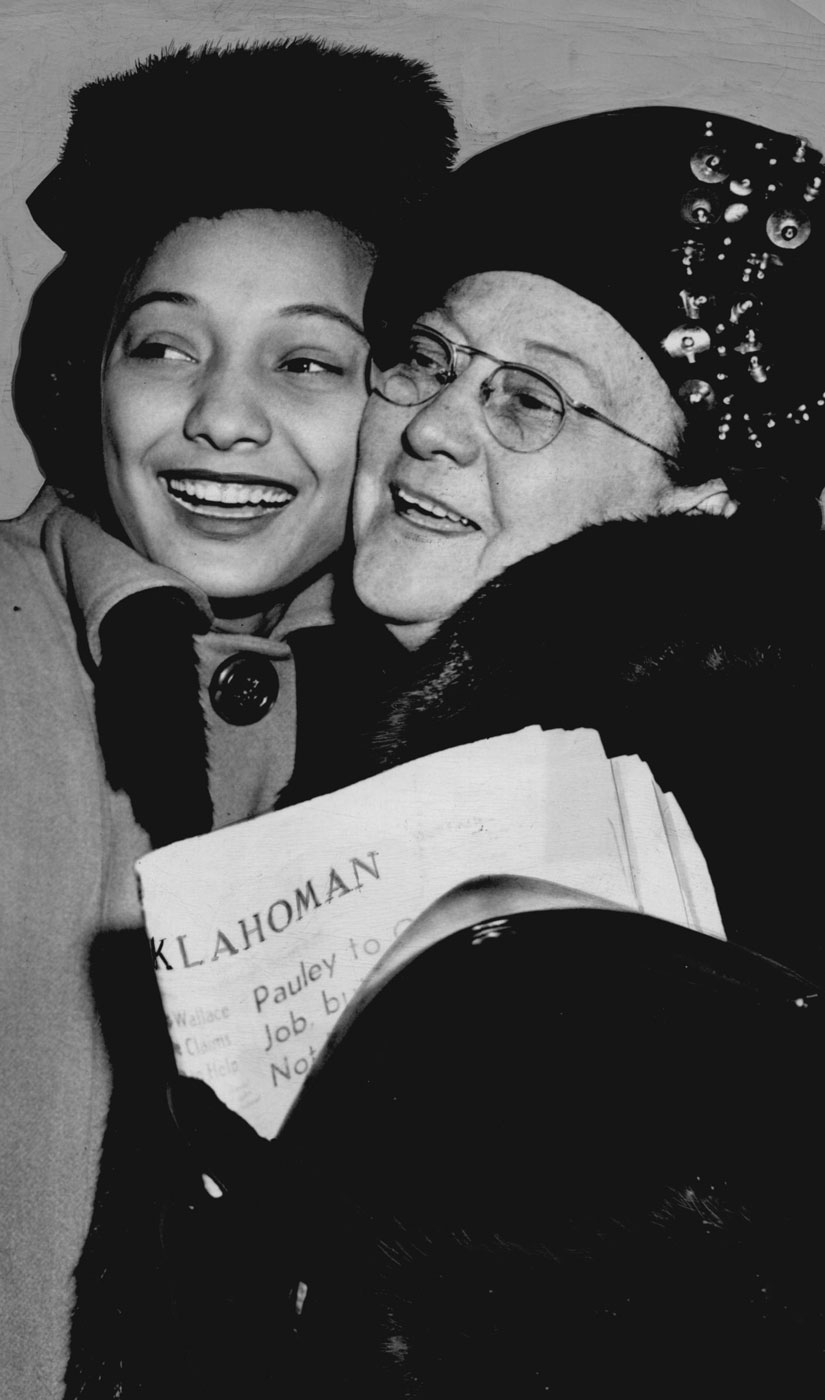 "Ada Lois Sipuel Fisher is greeted by her mother, Mrs. M.B. Sipuel." https://gateway.okhistory.org/ark:/67531/metadc764636/
"Ada Lois Sipuel Fisher is greeted by her mother, Mrs. M.B. Sipuel." https://gateway.okhistory.org/ark:/67531/metadc764636/
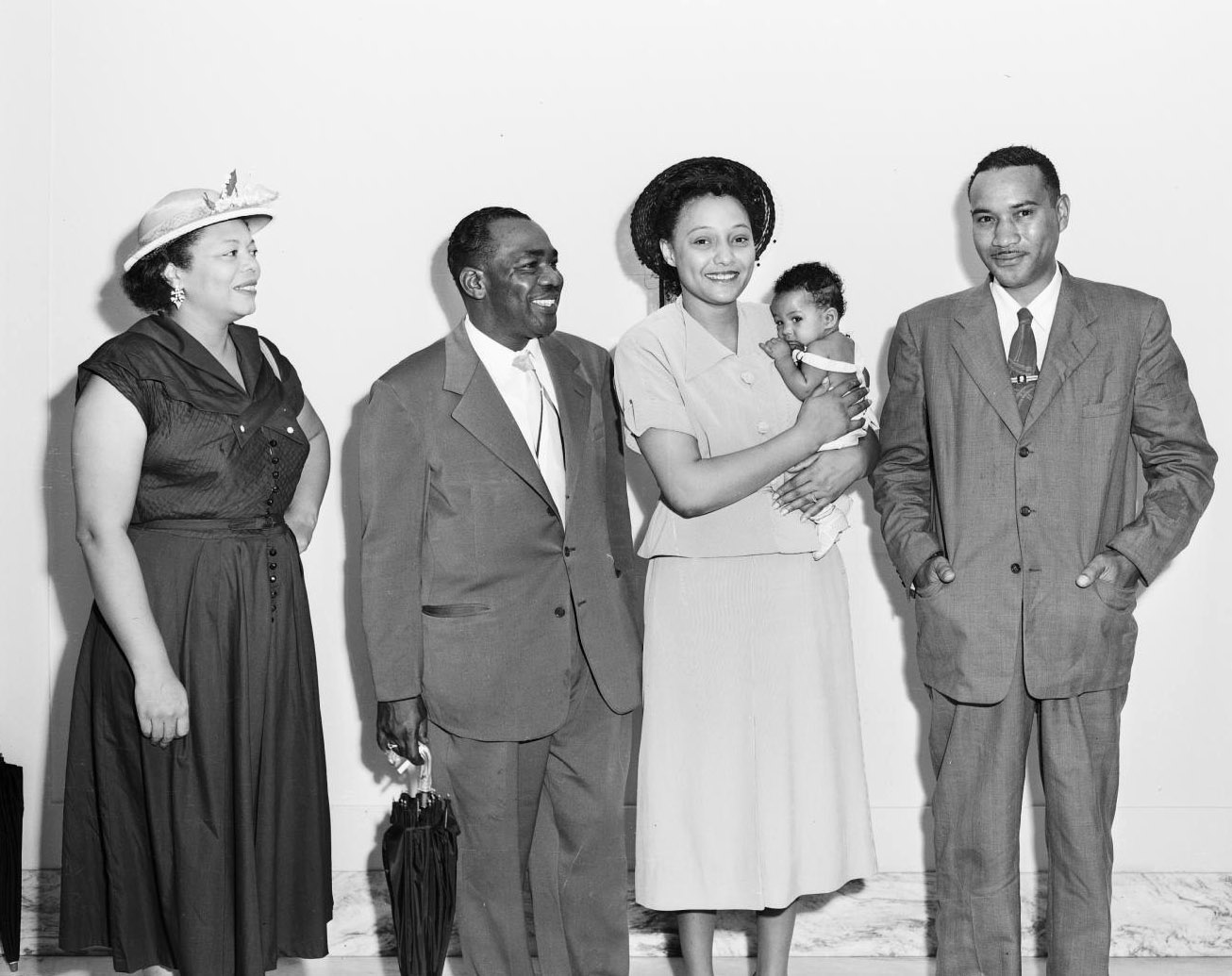 Photograph of L to R: Mae Lois (sister), UNIDENTIFIED, Ada Lois Sipuel Fisher, Bruce T. Fisher (son), Lemuel Sipuel (brother), Oklahoma City, OK. https://gateway.okhistory.org/ark:/67531/metadc1551427/
Photograph of L to R: Mae Lois (sister), UNIDENTIFIED, Ada Lois Sipuel Fisher, Bruce T. Fisher (son), Lemuel Sipuel (brother), Oklahoma City, OK. https://gateway.okhistory.org/ark:/67531/metadc1551427/
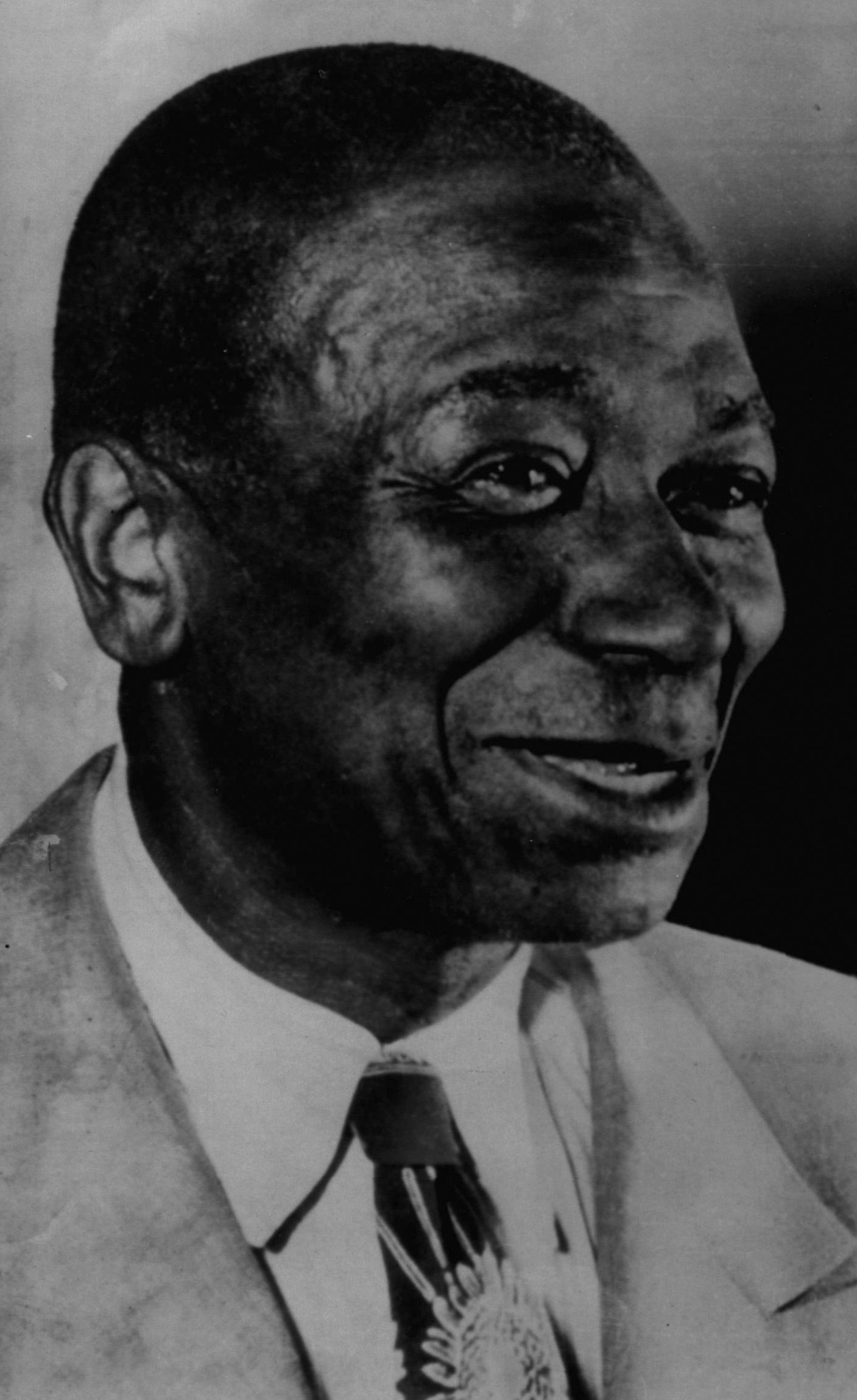 "George W. McLaurin, City, First Negro to be admitted to O.U." https://gateway.okhistory.org/ark:/67531/metadc427192/
"George W. McLaurin, City, First Negro to be admitted to O.U." https://gateway.okhistory.org/ark:/67531/metadc427192/
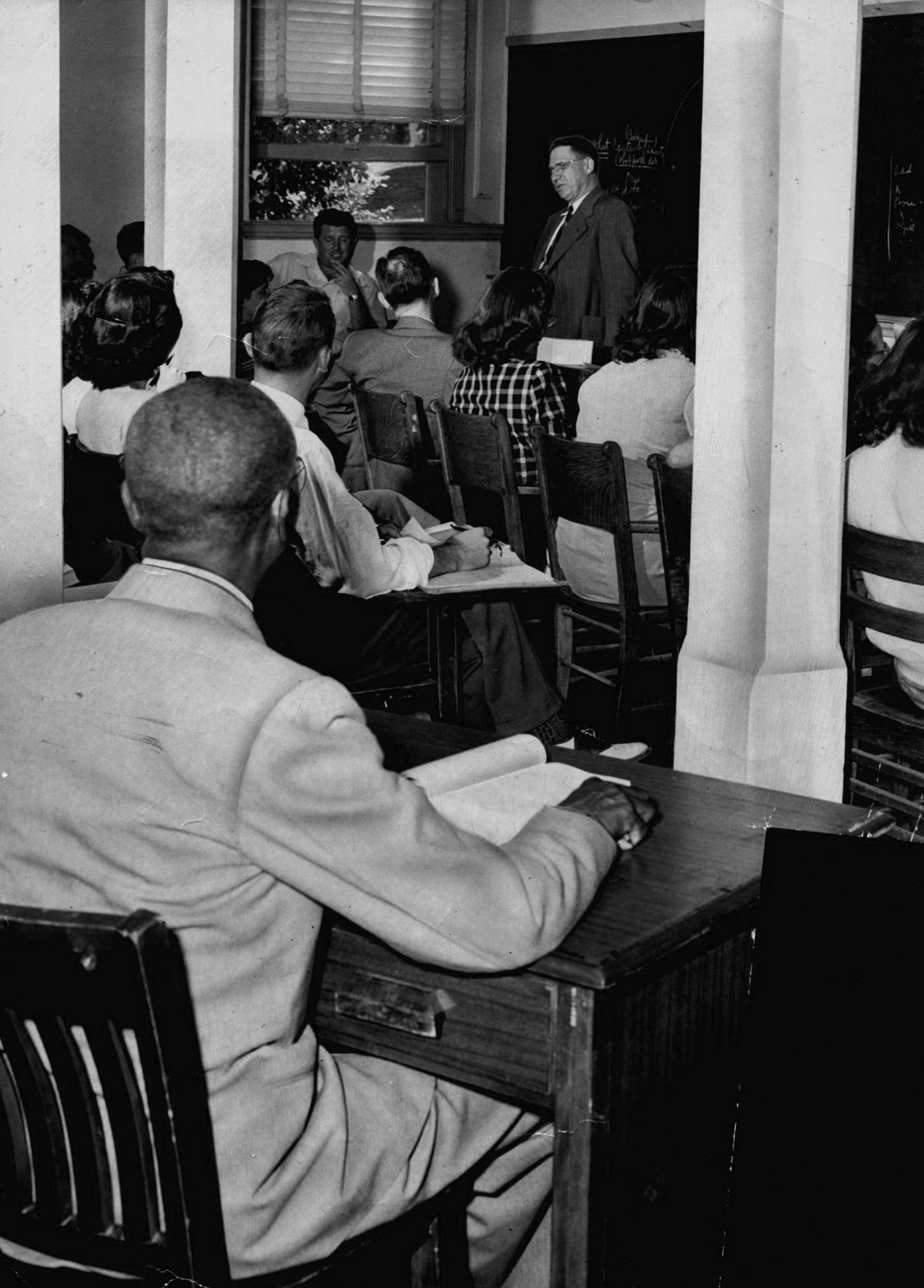 "George W. McLaurin, sits in an anteroom as Dr. F. A. Balyeat lectures at O.U." https://gateway.okhistory.org/ark:/67531/metadc416645/
"George W. McLaurin, sits in an anteroom as Dr. F. A. Balyeat lectures at O.U." https://gateway.okhistory.org/ark:/67531/metadc416645/
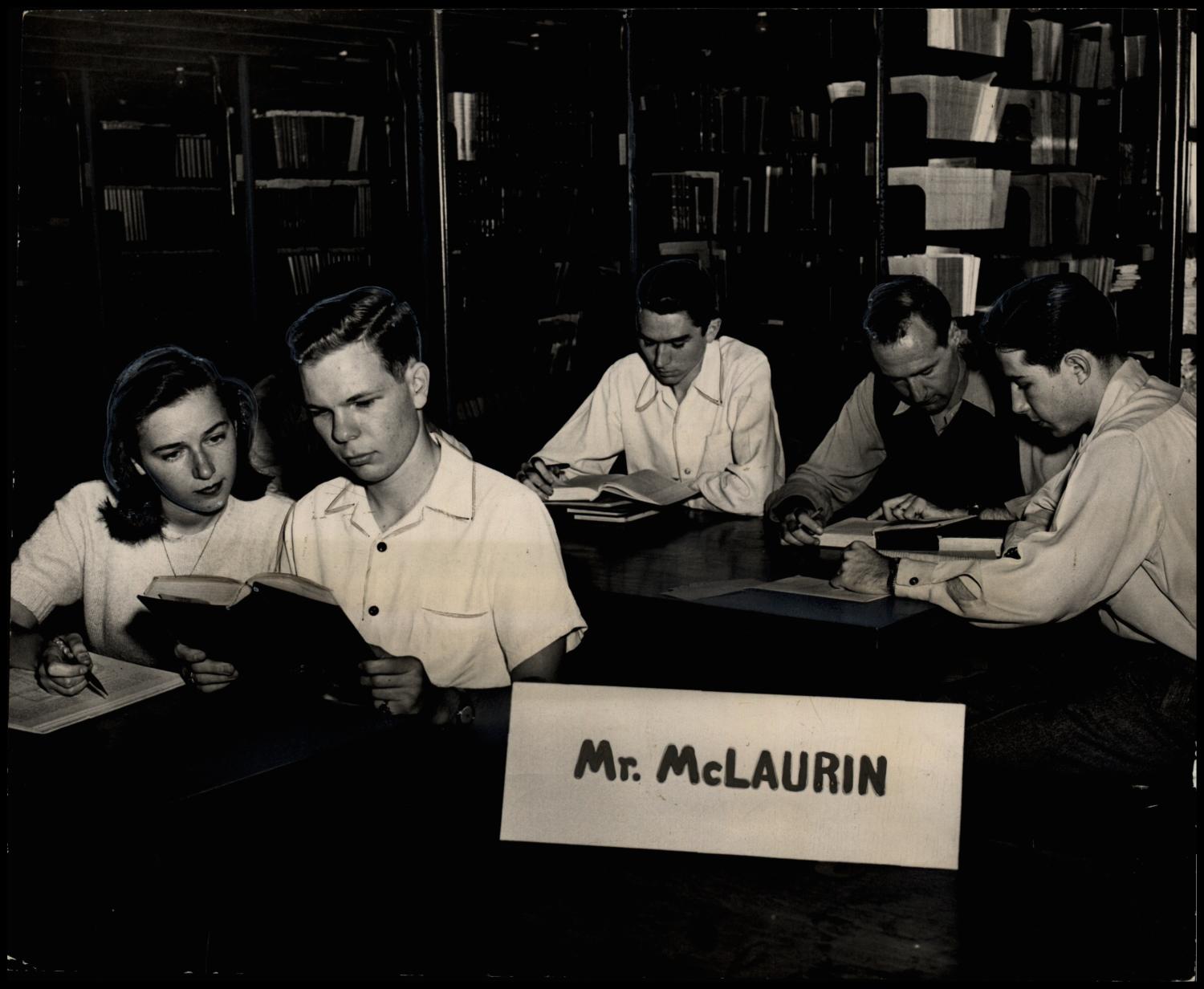 "If a three-judge federal court rules OU's segregation policy against George W. McLaurin, Negro graduate student, is unconstitutional, he will lose the private use of this desk." https://gateway.okhistory.org/ark:/67531/metadc417658/
"If a three-judge federal court rules OU's segregation policy against George W. McLaurin, Negro graduate student, is unconstitutional, he will lose the private use of this desk." https://gateway.okhistory.org/ark:/67531/metadc417658/
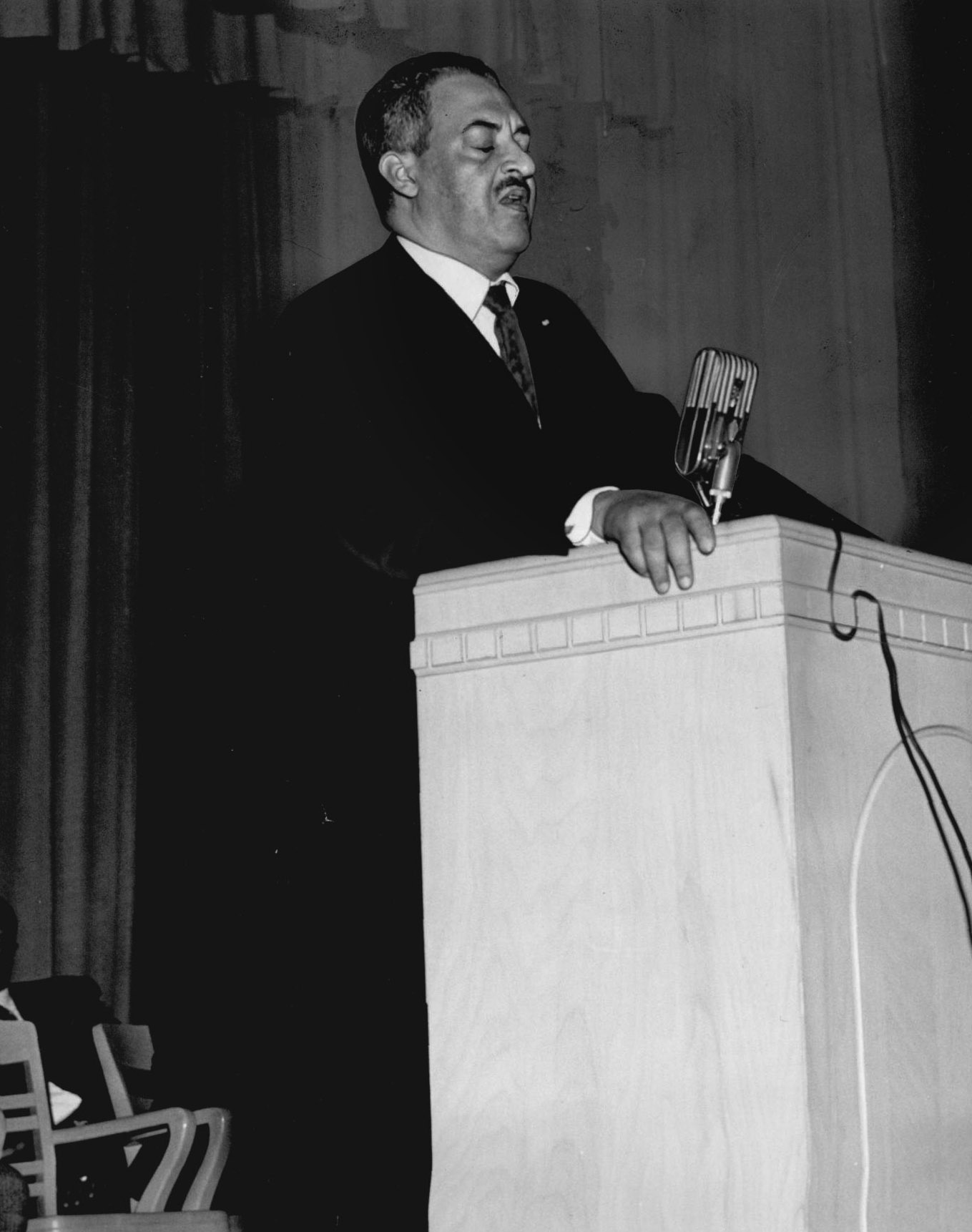 "Encouragement and advice were offered Oklahoma Negroes Sunday by Thurgood Marshall, NAACP counsel." https://gateway.okhistory.org/ark:/67531/metadc595966/
"Encouragement and advice were offered Oklahoma Negroes Sunday by Thurgood Marshall, NAACP counsel." https://gateway.okhistory.org/ark:/67531/metadc595966/
Online Primary Sources
Ada Lois Sipuel Legal Case Files, Oklahoma Department of Libraries Digital Prairie
George W. McLaurin v. Oklahoma Board of Regents for Higher Education, National Archives
Integration of U. S. Armed Forces, National Archives
Jim Crow and Segregation, Library of Congress
Additional Resources
Jim Crow Segregation: The Difficult and Anti-Democratic Work of White Supremacy, Teaching History
B. Evaluate the events arising from separate but equal, policies, such as poll taxes and literacy tests, violent responses such as the Birmingham church bombing and the assassination of Dr. Martin Luther King, Jr., and conflicts over segregation including:
1. Brown v. Board of Education, Topeka, Kansas decision
2.
Montgomery Bus Boycott
3.
desegregation of Little Rock Central High School
4.
Oklahoma City lunch counter sit-ins led by Clara Luper
5.
Freedom Rides
6.
Marches on Washington and Selma to Montgomery
7.
adoption of the 24th Amendment
8.
passage of the Civil Rights Act of 1964 and the Voting Rights Act of 1965.
"The Good Fight," Crossroads
Oklahoma History Center Education Resources
Traveling Trunks
African Americans in Oklahoma
E-Exhibit
The African American Civil Rights Movement in Oklahoma
The Encyclopedia of Oklahoma History and Culture
Jimmie Lewis Franklin, "African Americans"
Jerry E. Stephens, "Busing"
James M. Smallwood, "NAACP"
Robert H. Henry, "Civil Rights Movement"
James M. Smallwood, "Segregation"
Stefanie Lee Decker, "Clara Shepard Luper"
Research Center Resources
Clara Luper, Behold the Walls (N.p.: Jim Wire, 1979).
Jimmie Lewis Franklin, Journey Toward Hope: A History of Blacks in Oklahoma (Norman: University of Oklahoma Press, 1982).
Audio/Visual
 Left to right, 1. A. Willie James, 2. Clara Luper, 3. bus driver, 4. a reporter boarding a chartered bus at Douglas High School, Oklahoma City For National NAACP Convention in Washington, DC. Photo by Johnny Melton, Aug. 26, 1963. https://gateway.okhistory.org/ark:/67531/metadc1082507/
Left to right, 1. A. Willie James, 2. Clara Luper, 3. bus driver, 4. a reporter boarding a chartered bus at Douglas High School, Oklahoma City For National NAACP Convention in Washington, DC. Photo by Johnny Melton, Aug. 26, 1963. https://gateway.okhistory.org/ark:/67531/metadc1082507/
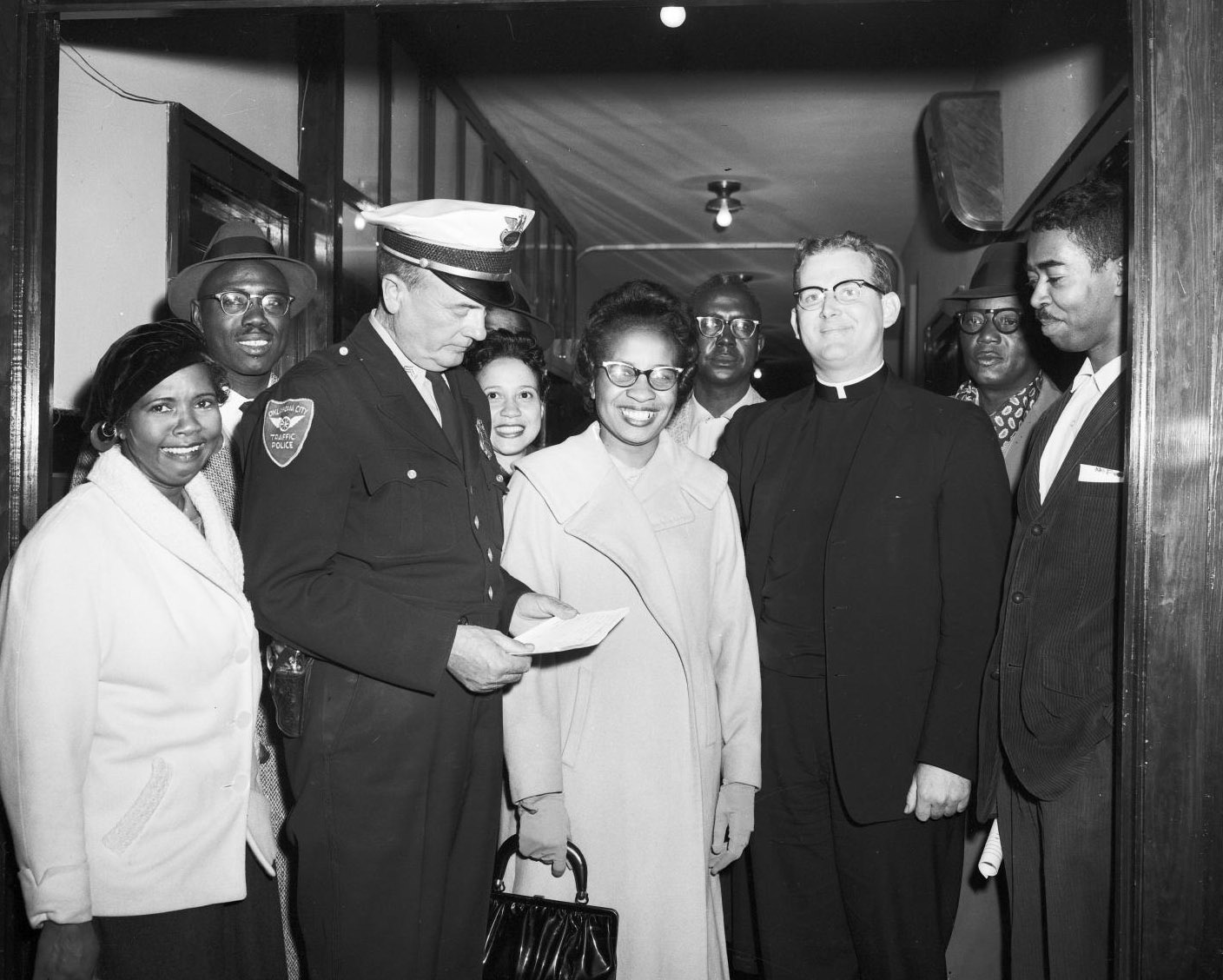 Right to left, 1. E. Melvin Porter, 2. A. Willie James, 3. Fr. Robert McDole, 4. unidentified, 5. Clara Luper, 6. Bobbye Moon, 7. Police officer, 8. Ed Stamps, 9. Mrs. Ella Floyd at the Oklahoma City Police Headquarters. https://gateway.okhistory.org/ark:/67531/metadc1082417/
Right to left, 1. E. Melvin Porter, 2. A. Willie James, 3. Fr. Robert McDole, 4. unidentified, 5. Clara Luper, 6. Bobbye Moon, 7. Police officer, 8. Ed Stamps, 9. Mrs. Ella Floyd at the Oklahoma City Police Headquarters. https://gateway.okhistory.org/ark:/67531/metadc1082417/
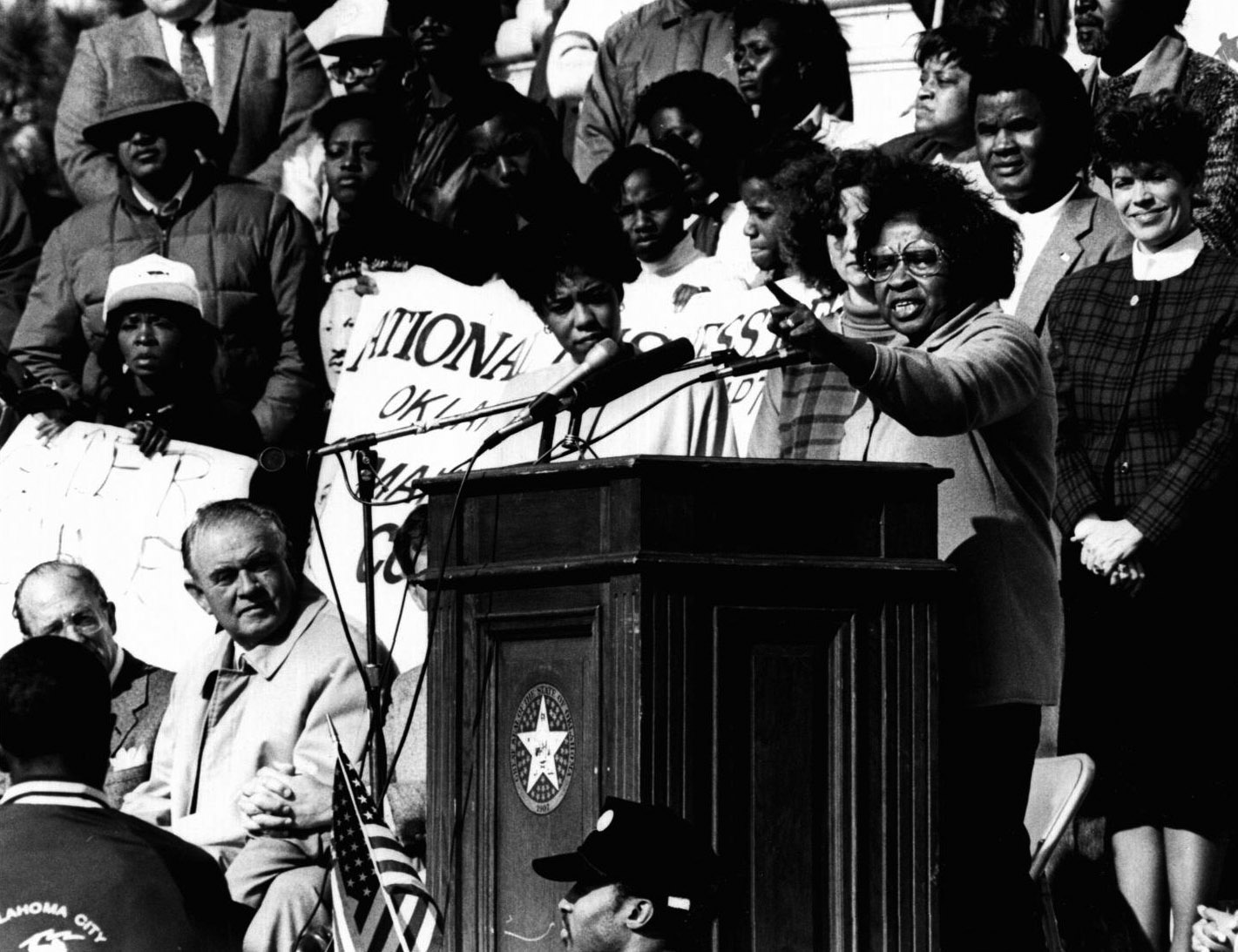 Photograph 2012.201.B0366B.0545 https://gateway.okhistory.org/ark:/67531/metadc451530/
Photograph 2012.201.B0366B.0545 https://gateway.okhistory.org/ark:/67531/metadc451530/
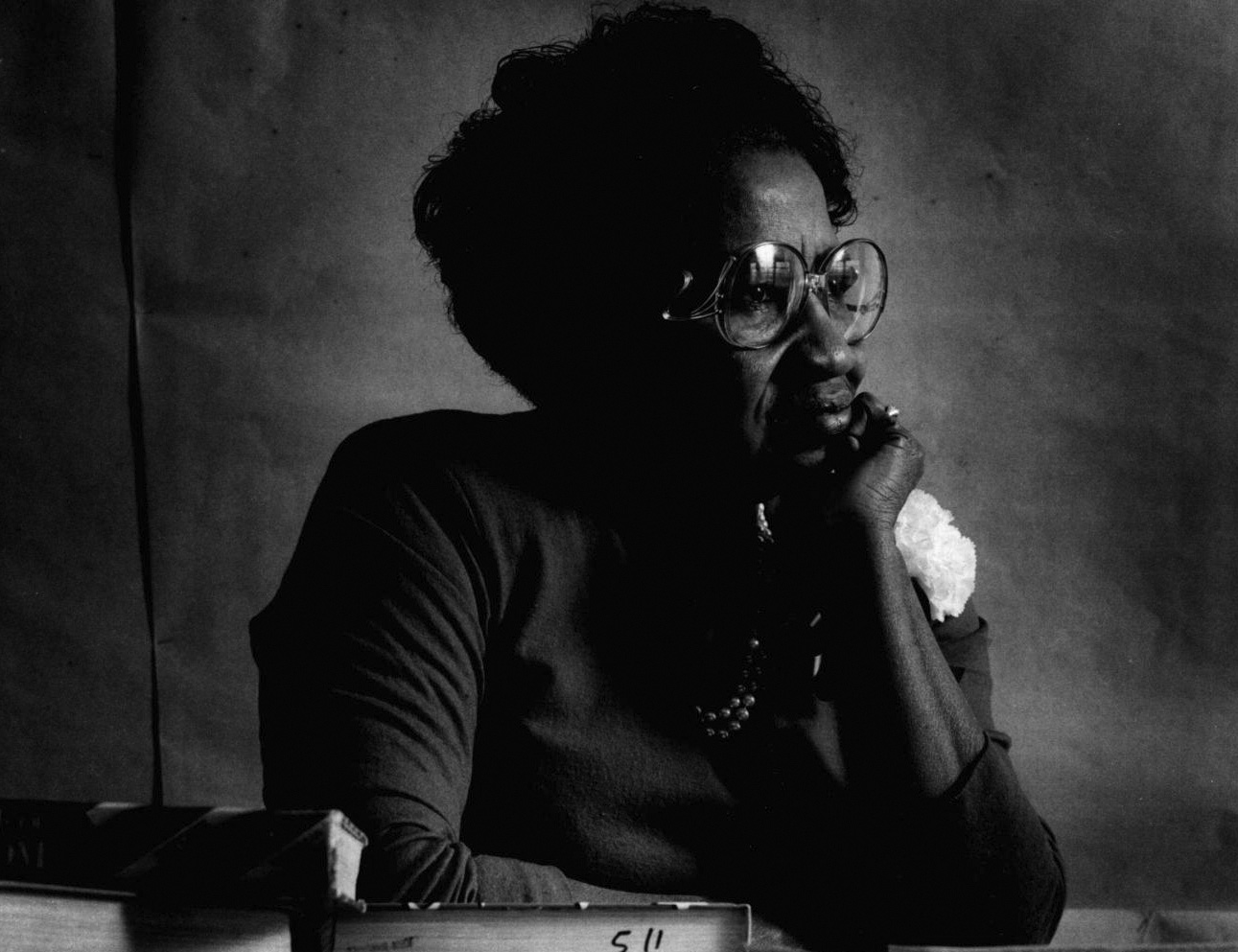 "Rather, insists Clara Luper, "the torch had been handed down to a new generation." https://gateway.okhistory.org/ark:/67531/metadc449797/
"Rather, insists Clara Luper, "the torch had been handed down to a new generation." https://gateway.okhistory.org/ark:/67531/metadc449797/
Online Primary Sources
Brown v. Board of Education (1954)
Rosa Parks: A Primary Source Gallery, Library of Congress
Bus Boycott: Historical Documents Highlight Integration Milestone, Teaching Tolerance
Primary Sources: Civil Rights in America - Events: Central High (Little Rock, AK) [1957], Christopher Newport University
Daisy Bates' Letter about "Little Rock Nine," December 17, 1957, State Historical Society of Iowa
Marilyn Luper Oral History, Voices of Oklahoma
Primary Sources: The 1960s: Freedom Riders, Christopher Newport University
Voices of the March on Washington, PBS
The March on Washington for Jobs and Freedom, National Archives
Civil Rights Ace (1964), Our Documents
The Civil Rights Act of 1964 and the Equal Employment Opportunity Commission, National Archives
Back to the US History Resource List

